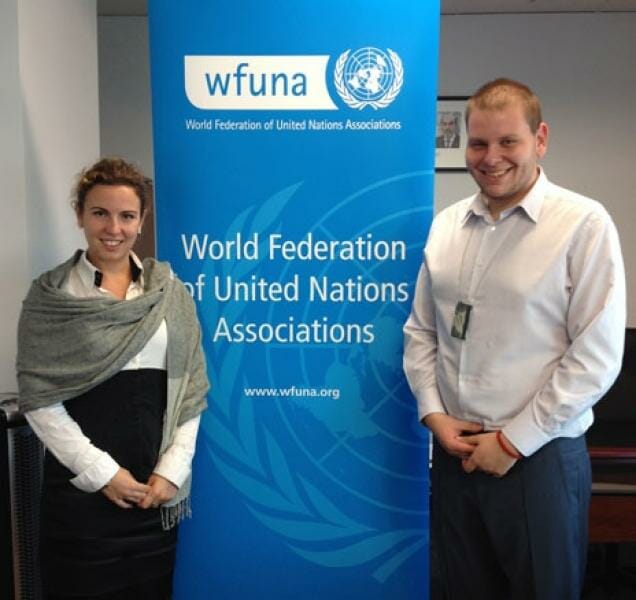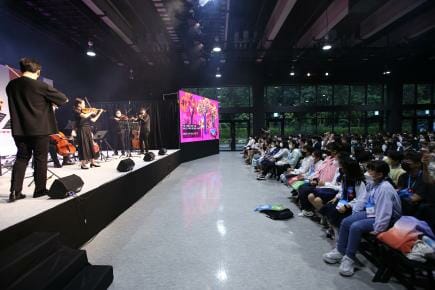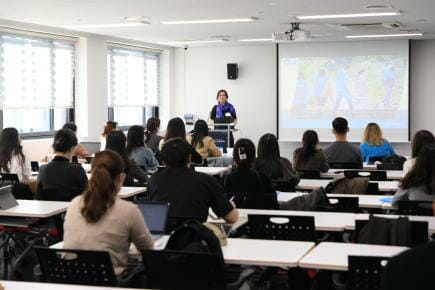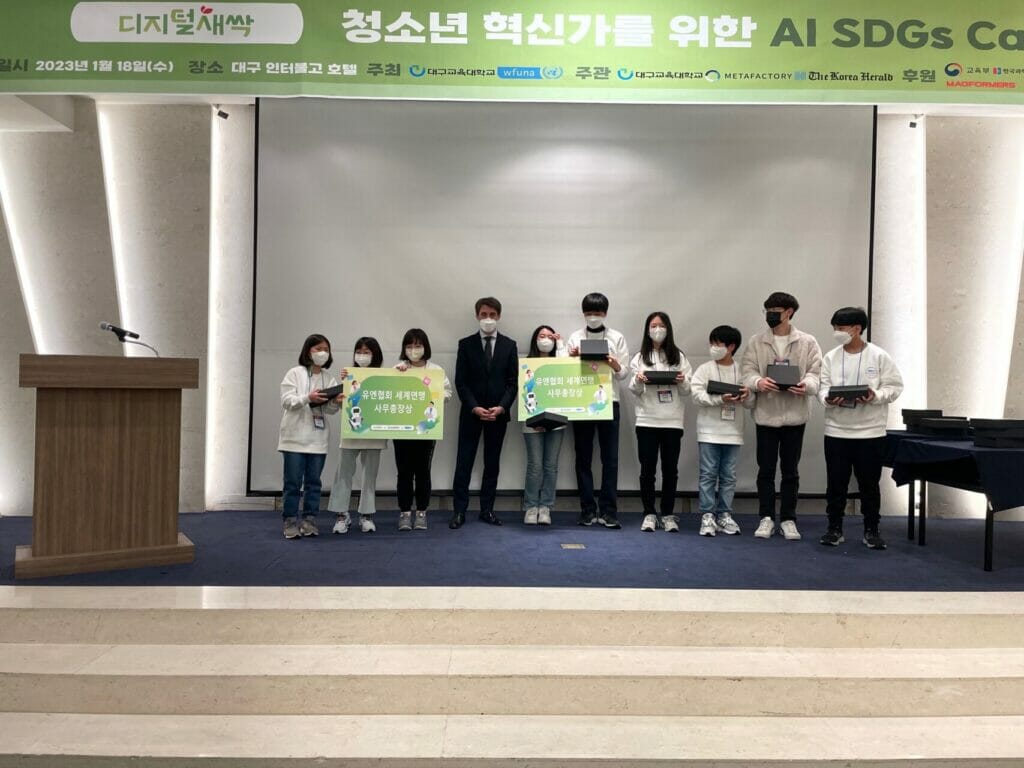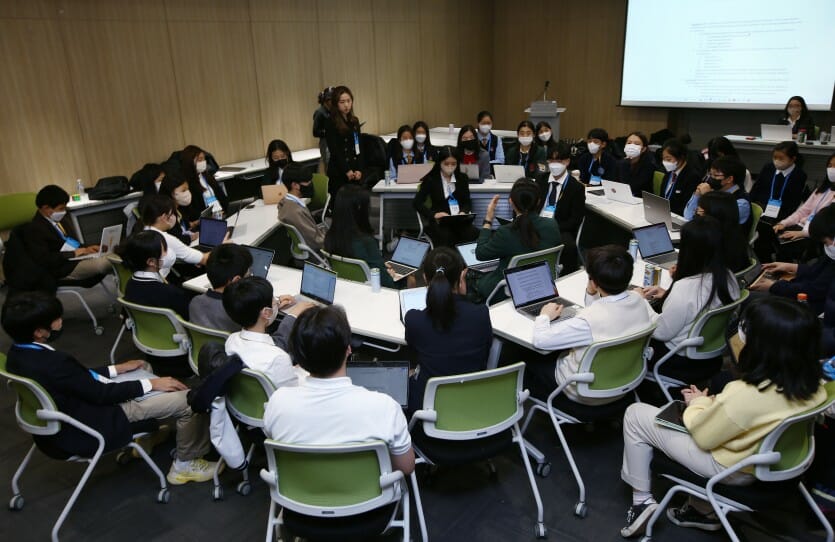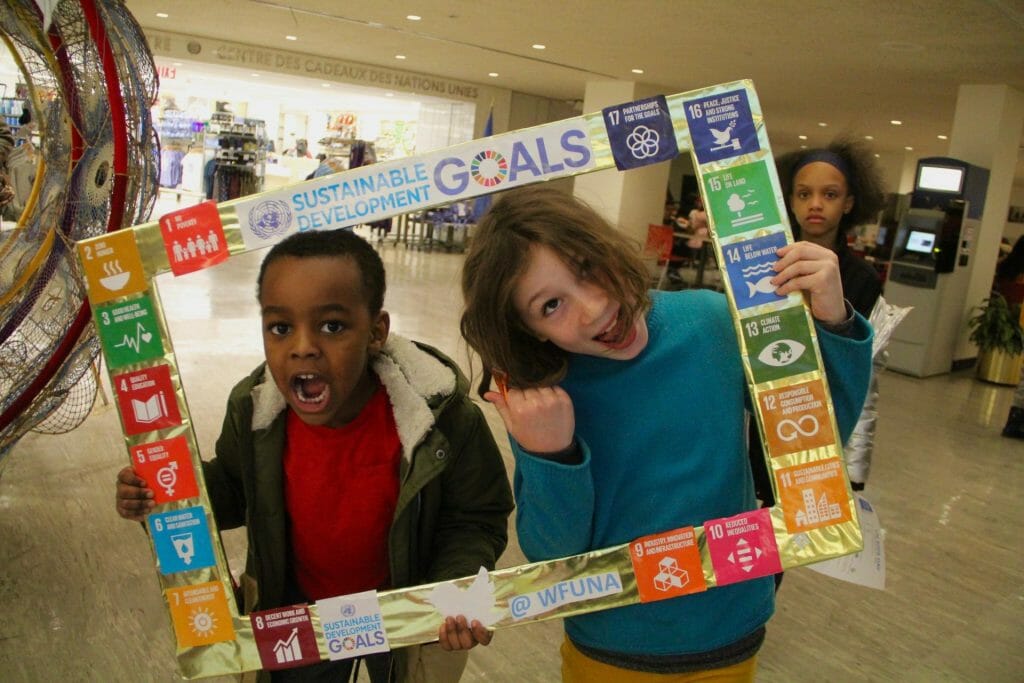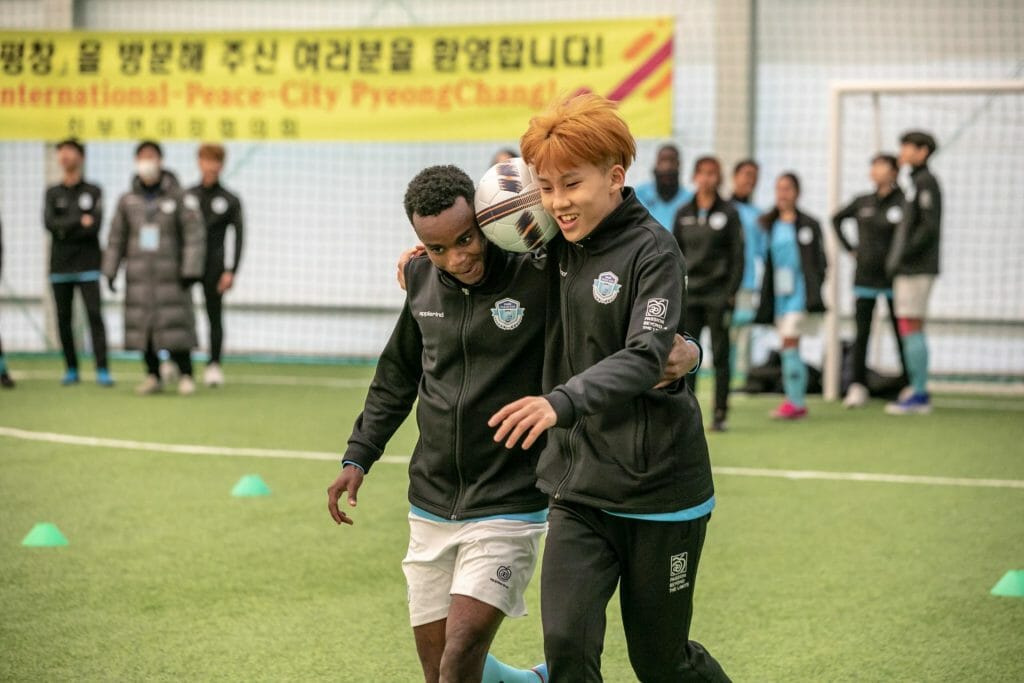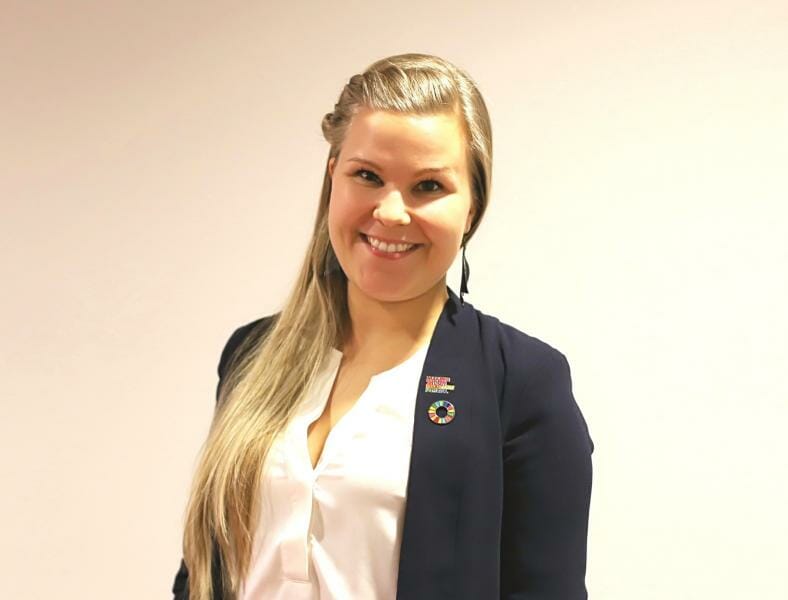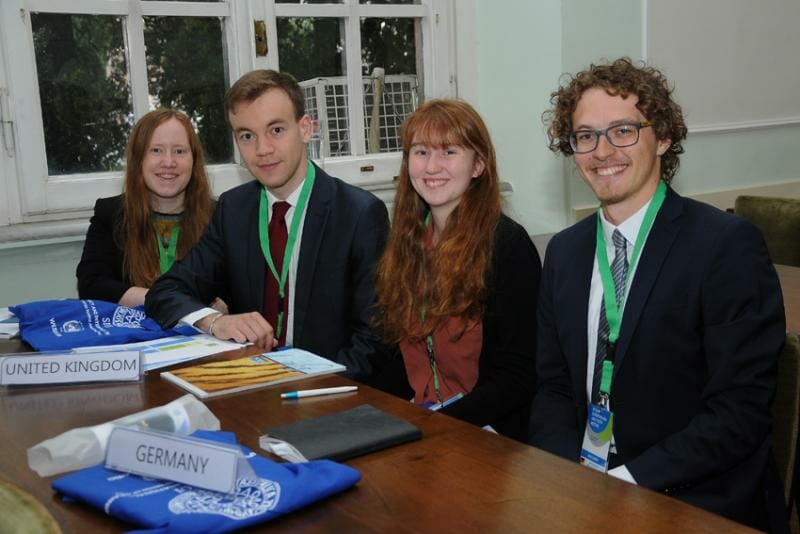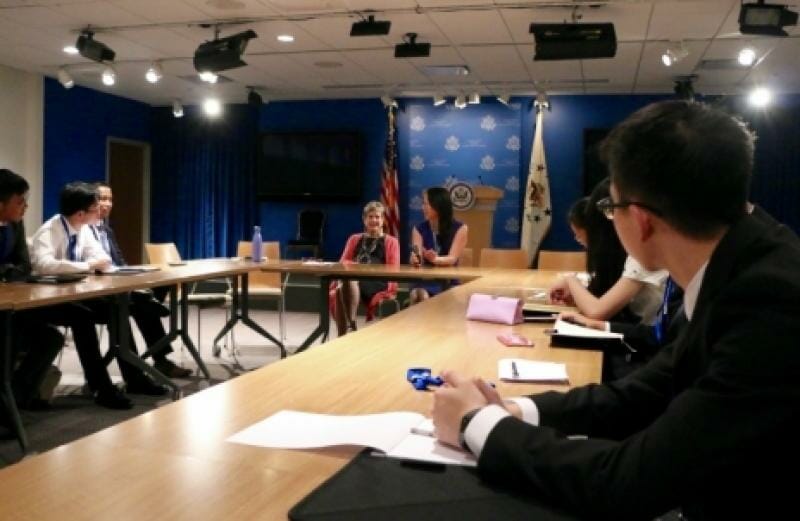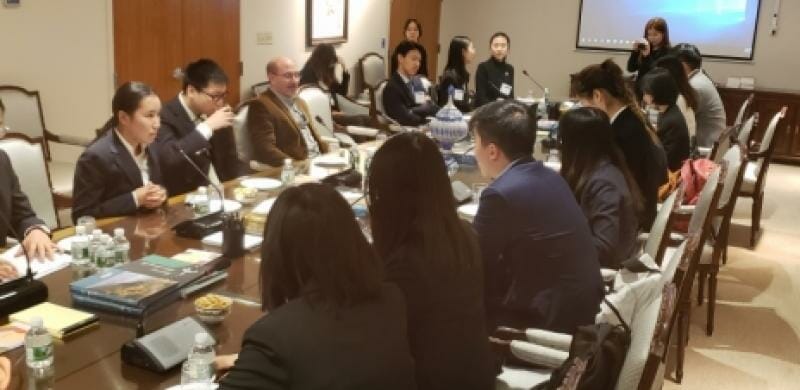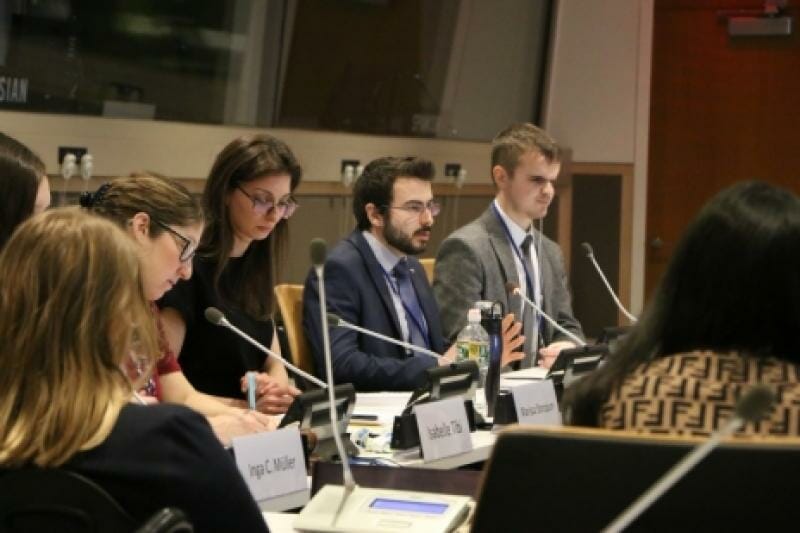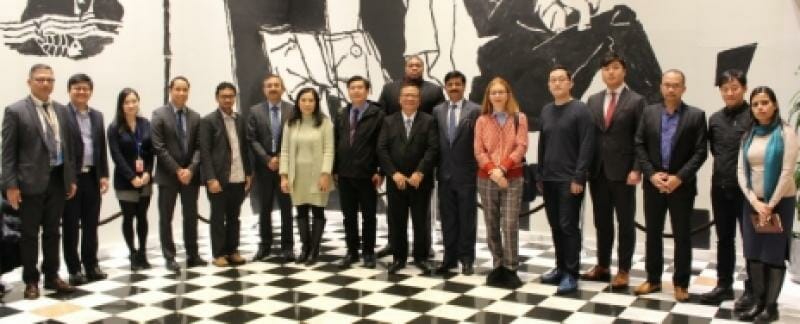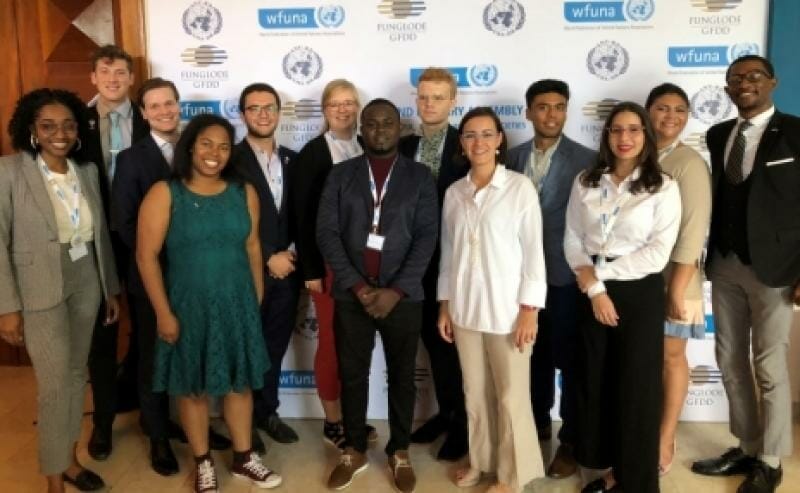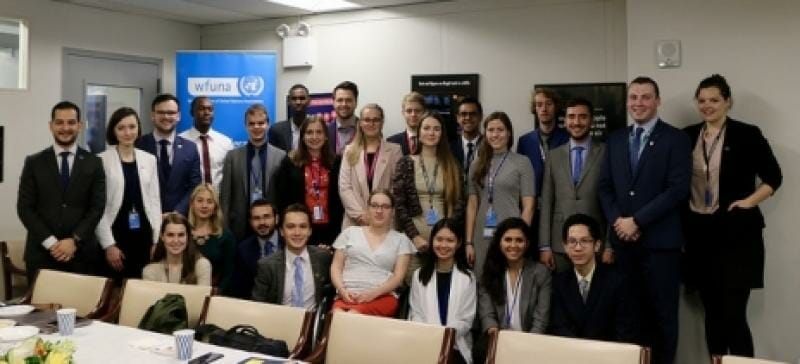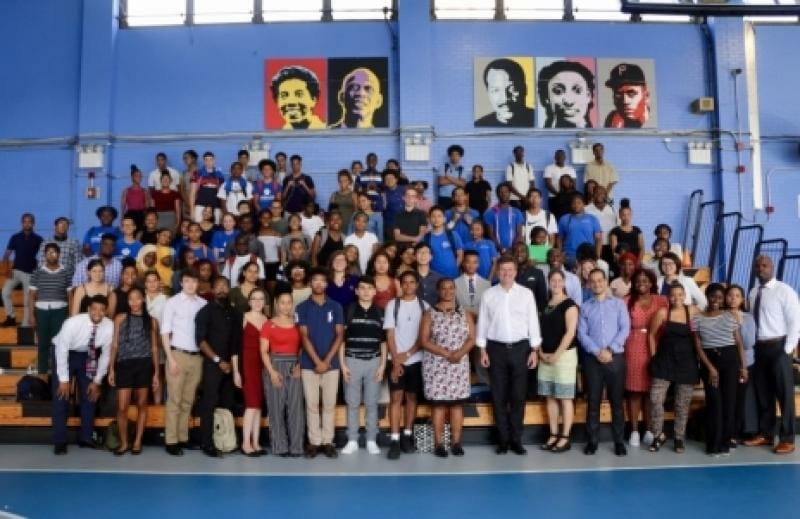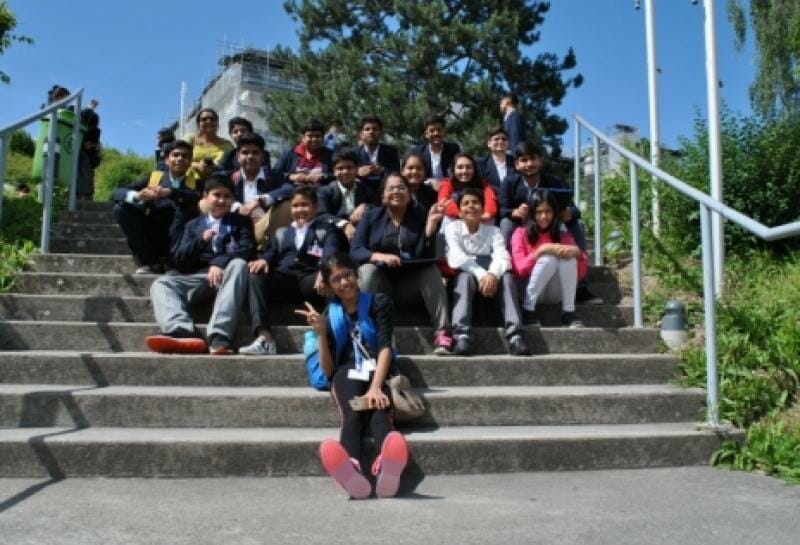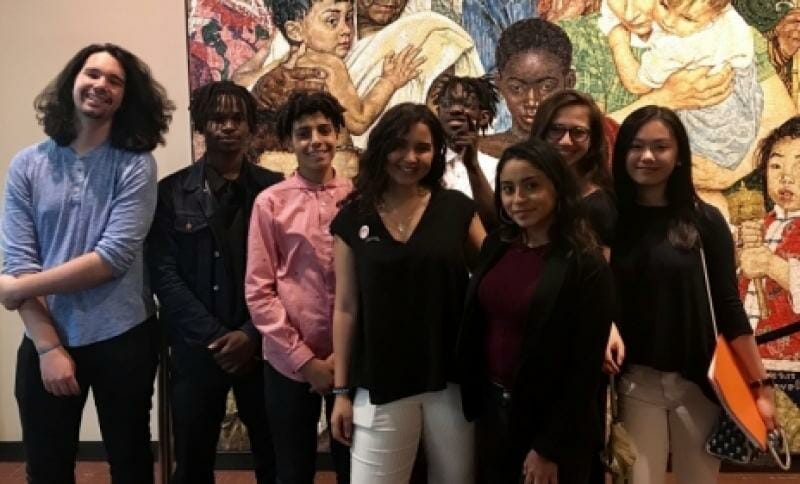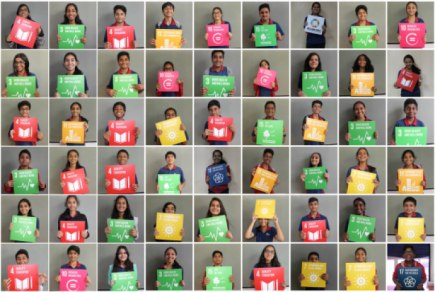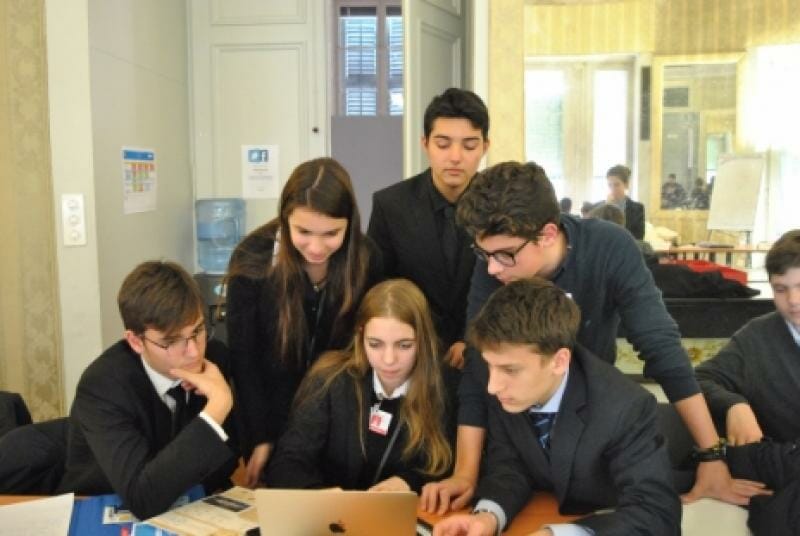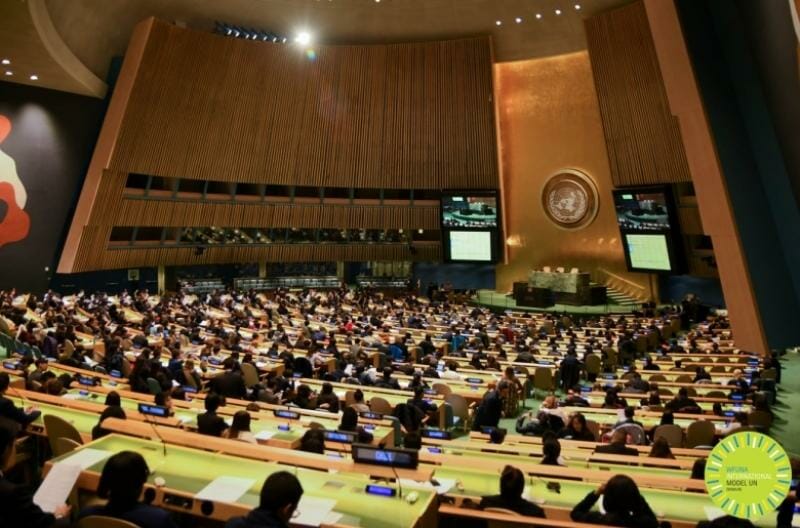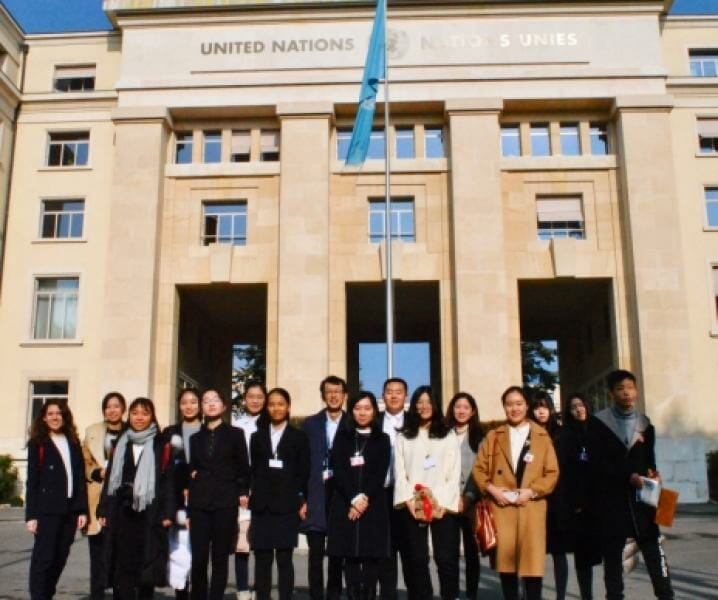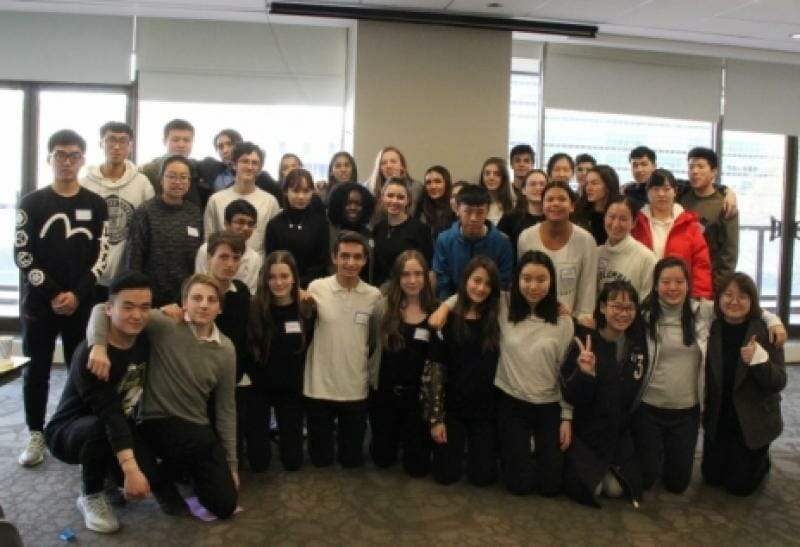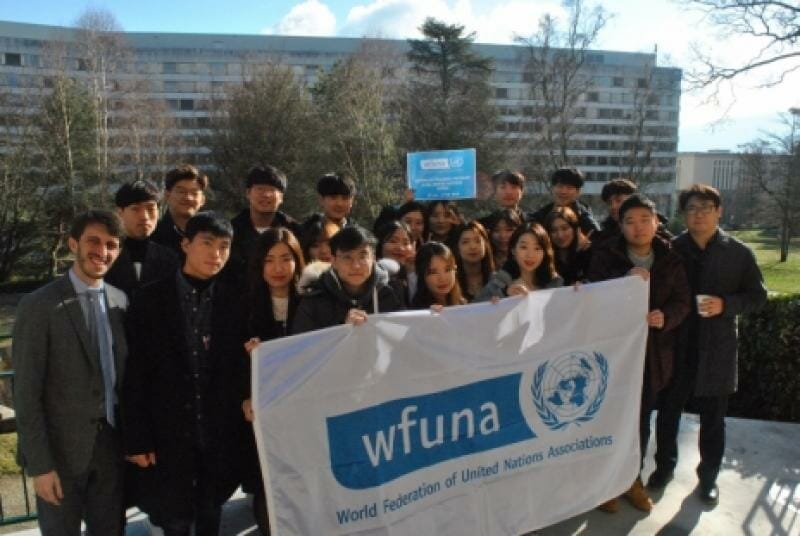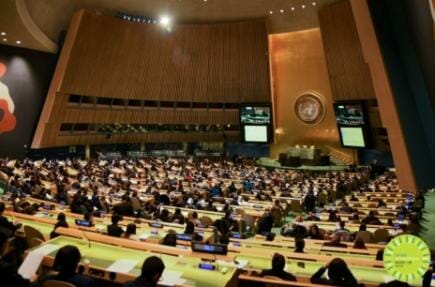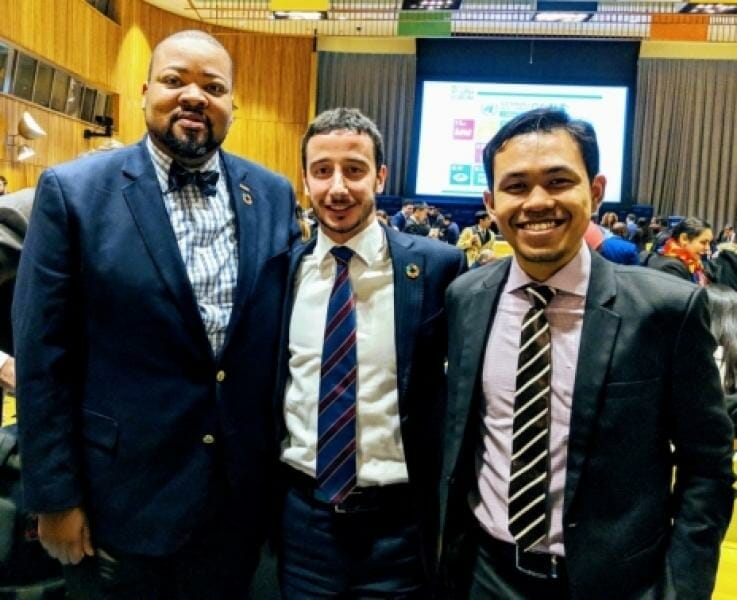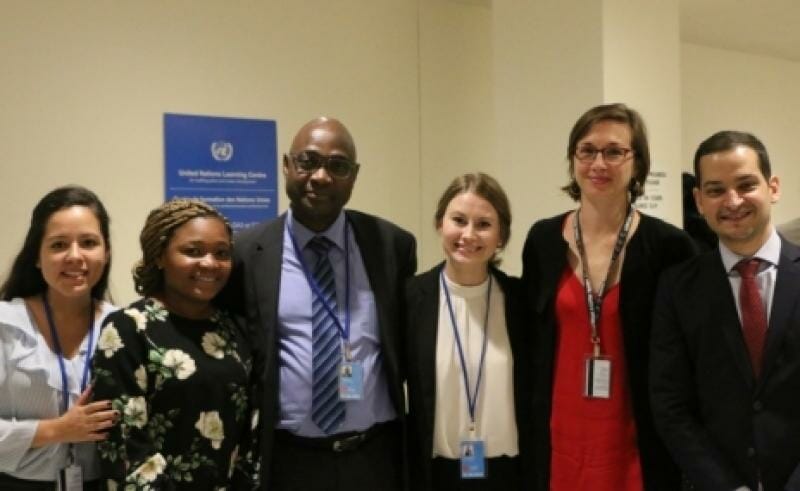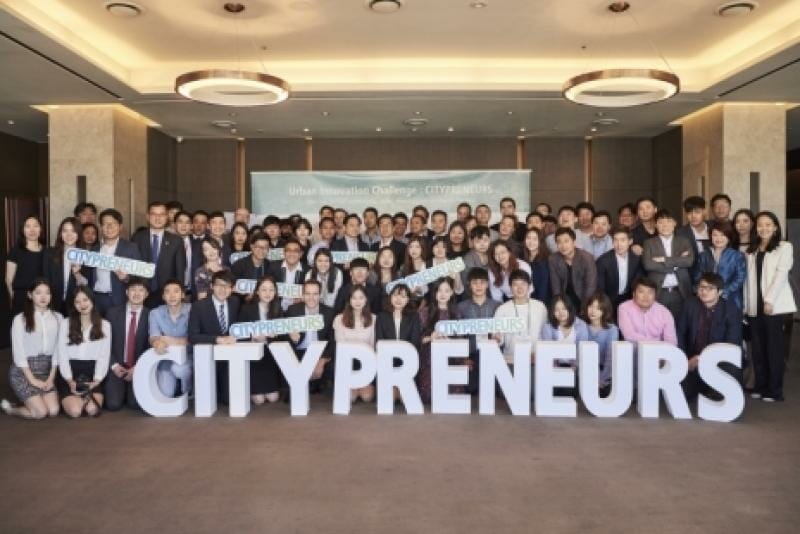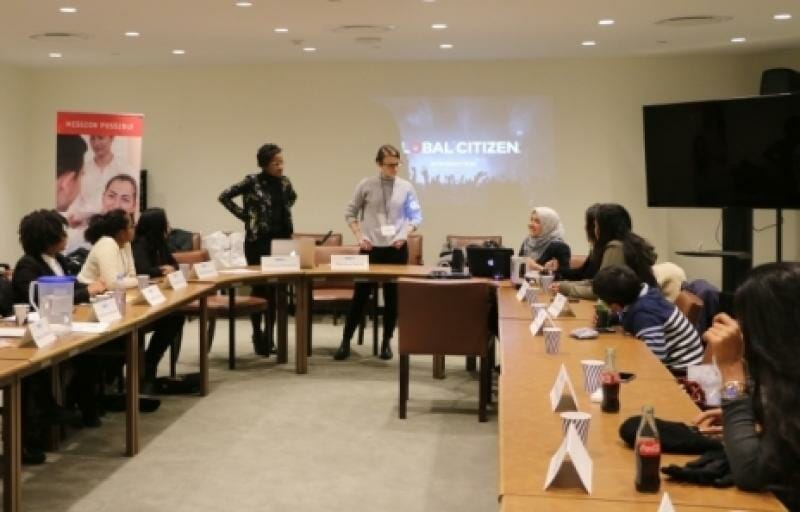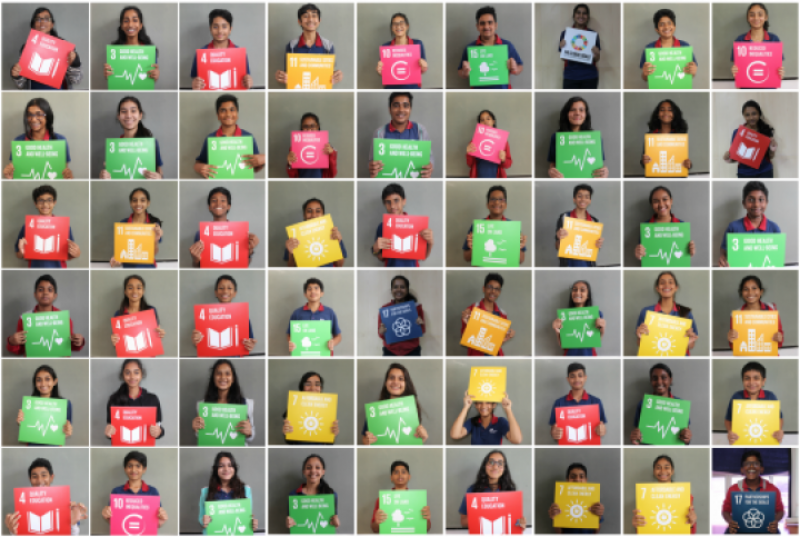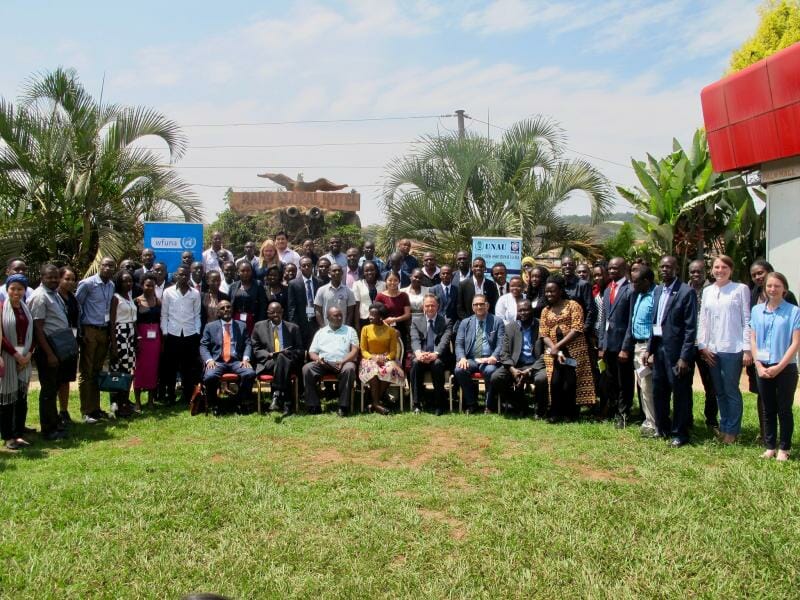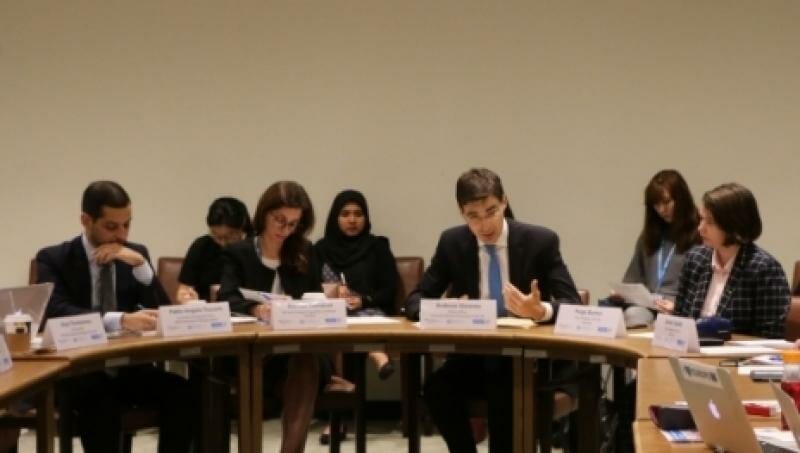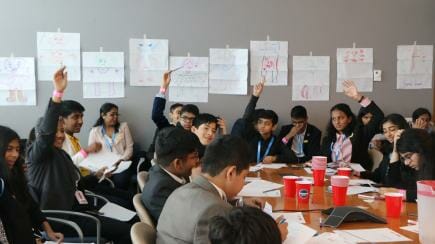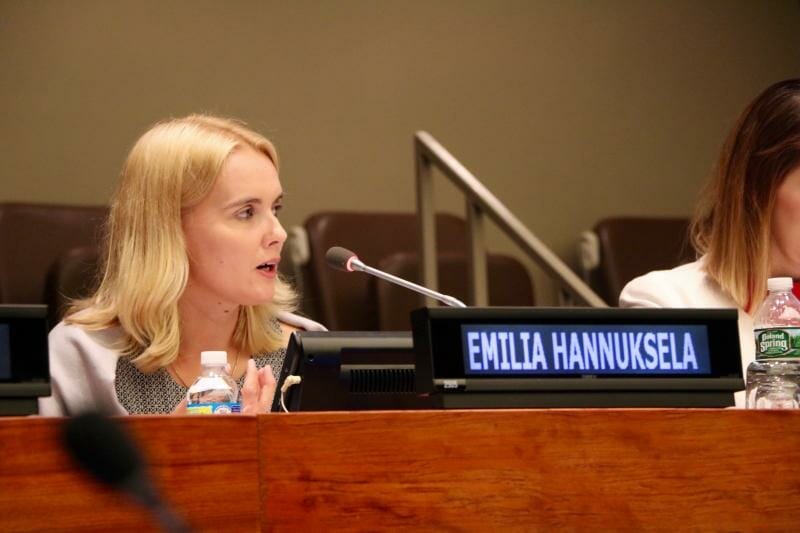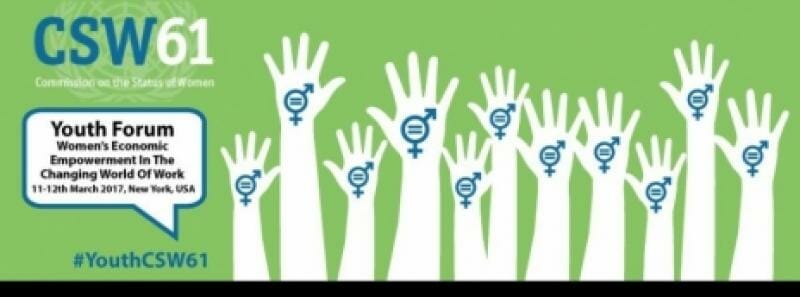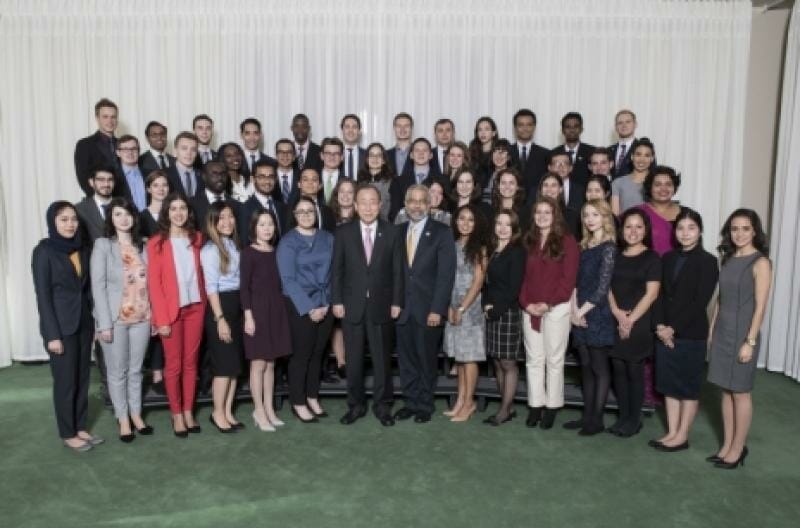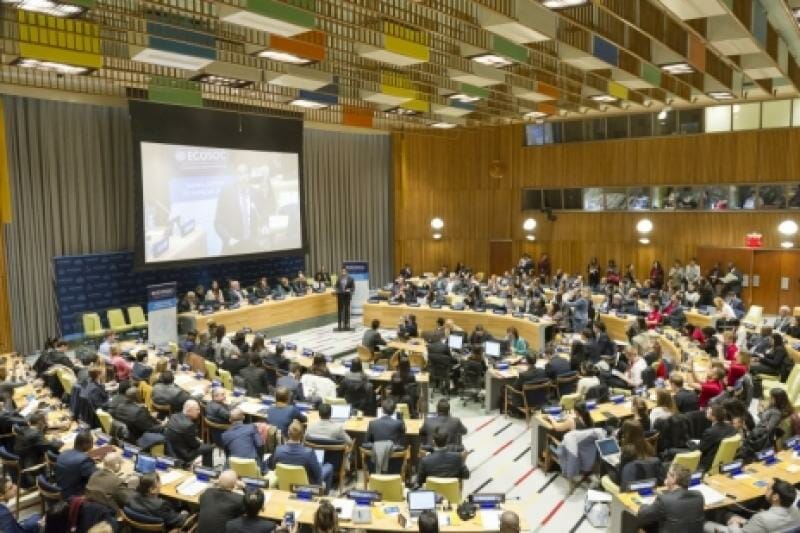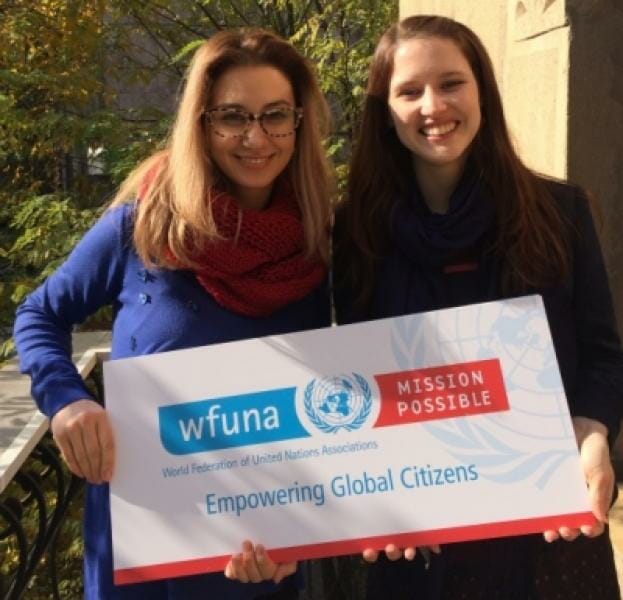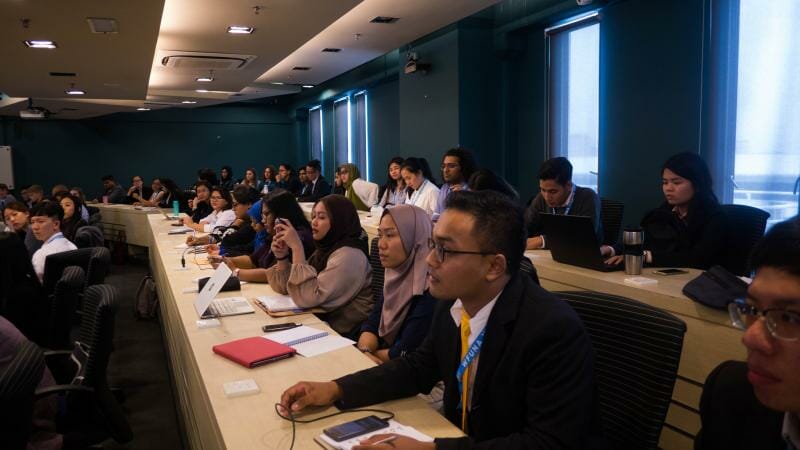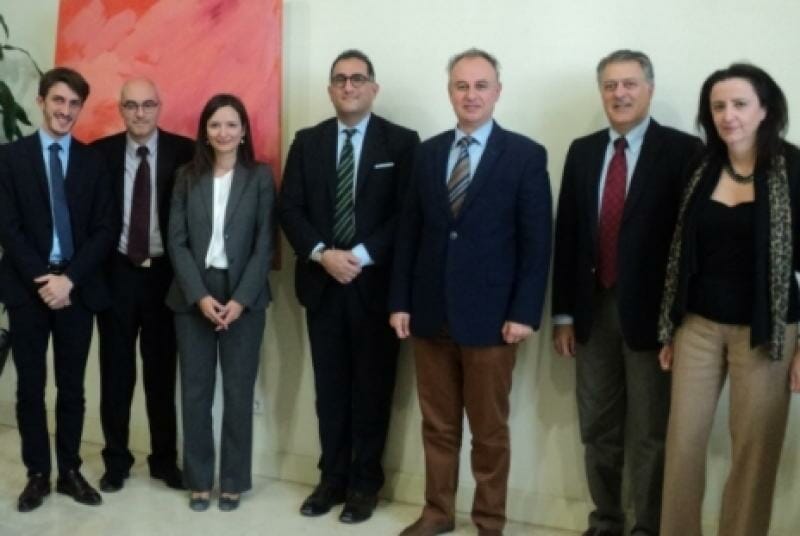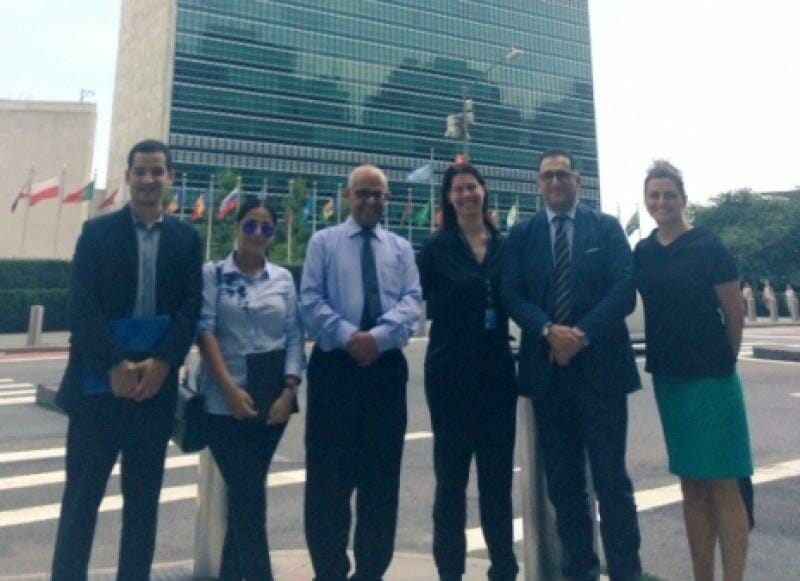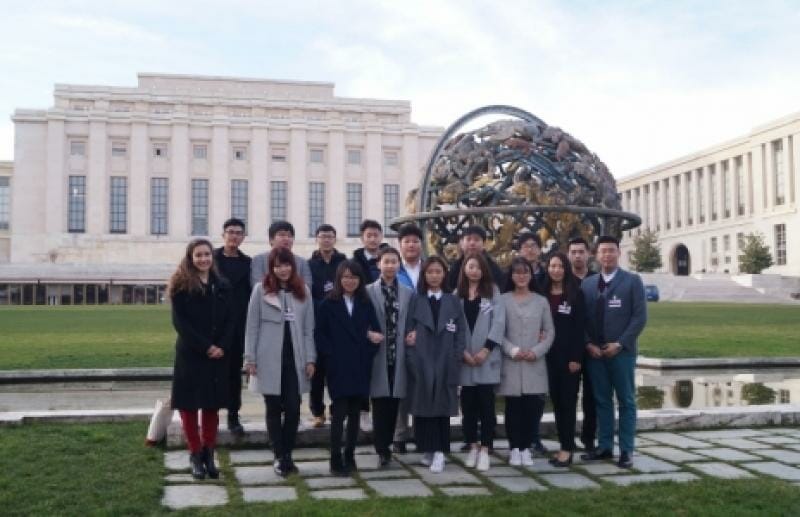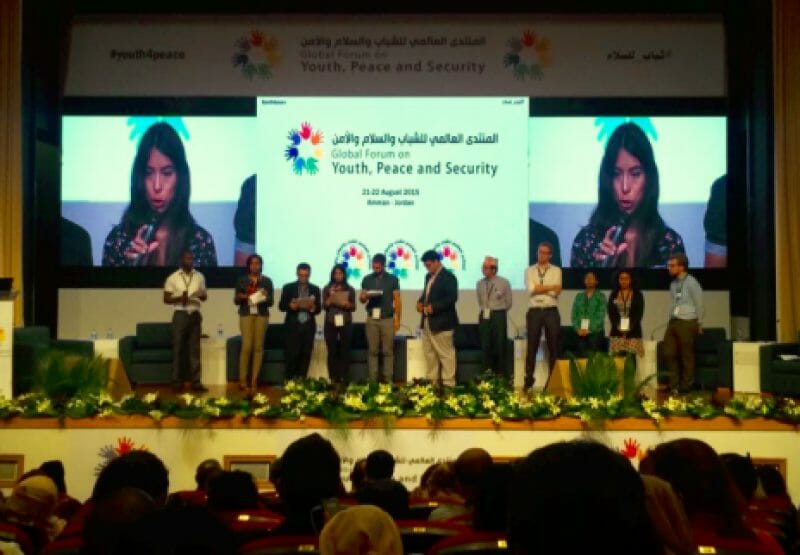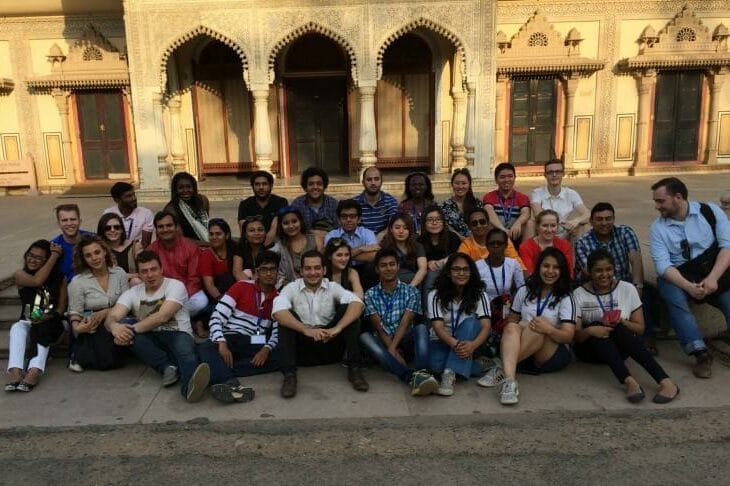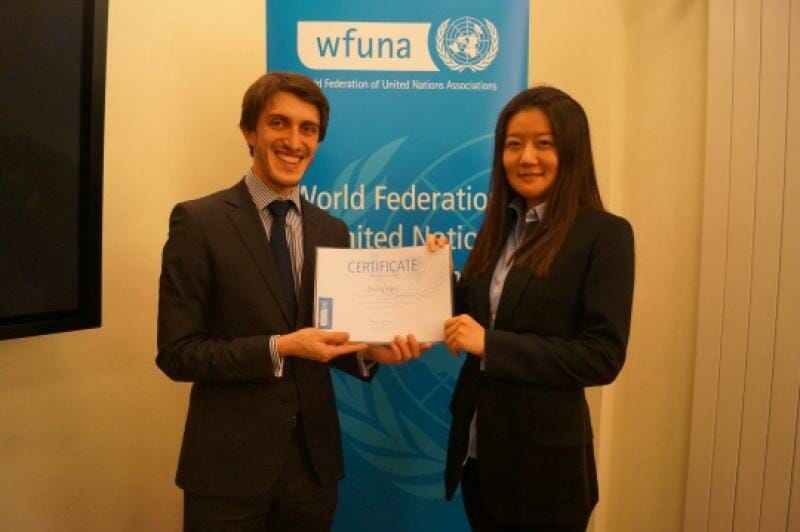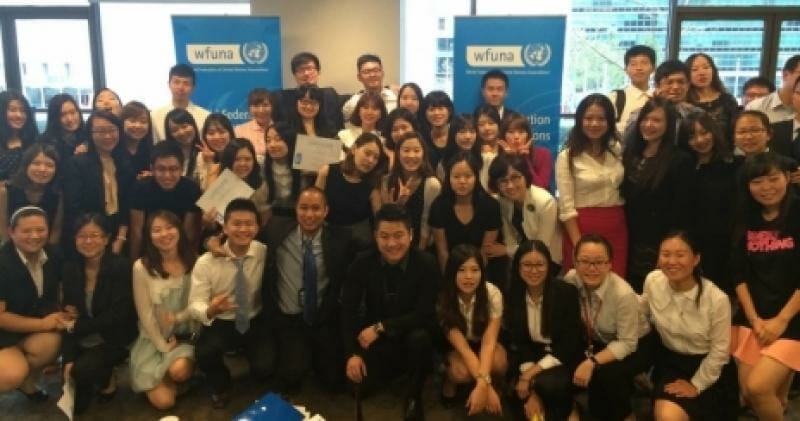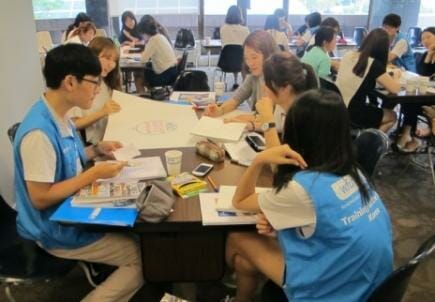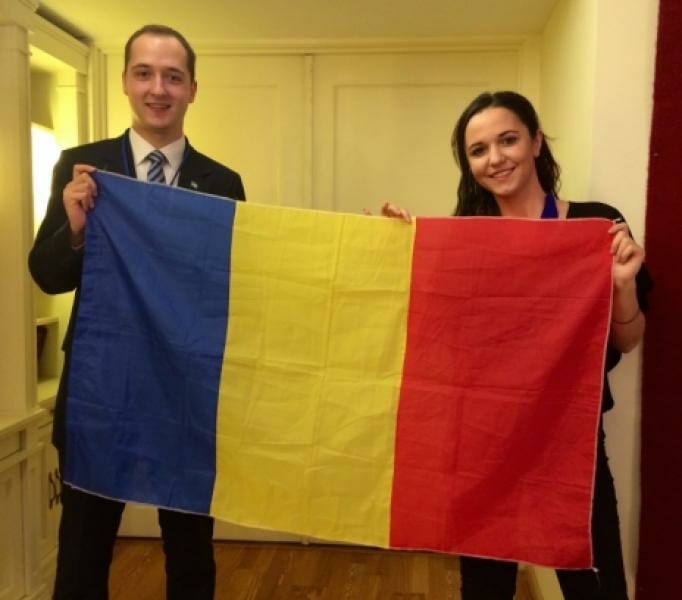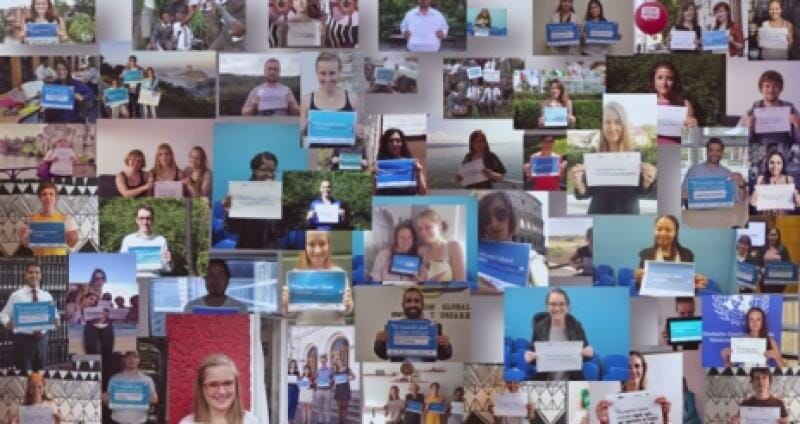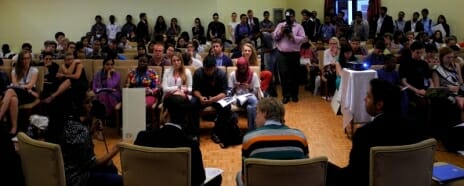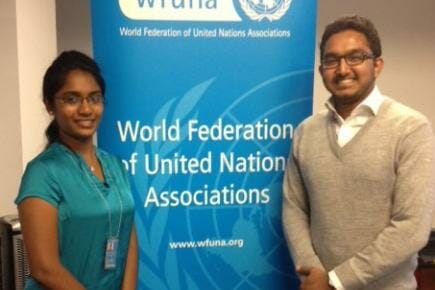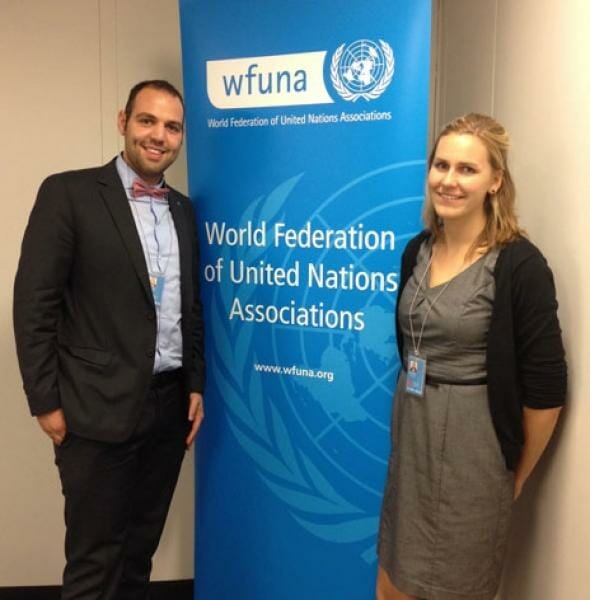This year, the Bulgarian Youth Delegates to the UN are Milena Andreeva, 26, and Peter Mladenov, 22. UNA-Bulgaria, in close cooperation with the Bulgarian Ministry of Foreign Affairs, manages the program. Both Milena and Peter were chosen through a highly competitive four-stage national competition. Milena has a background in Peace & Security and currently works at the Ministry of Defense of the Republic of Bulgaria and Peter is a seasoned youth activist with a background in comprehensive sexuality education. Here, Milena and Peter tell us what a normal day is like for a youth delegate.
WFUNA: What are the duties of the UN Youth Delegate?
Peter Mladenov: The UN delegates position is something kind of new in the UN system. Our work is mostly dedicated to the national level and then we try to represent the voice of Bulgaria here. We had a really busy two weeks. Every day we had so many events.
I’ll tell you one regular day. We’ll wake up at 6:30, 7 and we go to a working breakfast at some of the missions. Then we have fruitful discussions about youth participation to culture to peace and security, depending on the youth delegates preference. Then we have a meeting between delegates discussing different issues. Then we go to the GA of the third committee. Then we have a working lunch or side event. Then we continue with GA in the Third Committee or another meeting between youth delegates.
Our main thing is to be the voice of the youth here. It’s really hard because Bulgaria has about 1.3 million youth and [there are] only 2 of us here. It’s a great honor but it’s also a big responsibility representing all of them. I didn’t know we had youth delegates until last year. It is not popular unfortunately. We have social media, we have a website which is a really interactive one and we have many events. Maybe because youth connect the UN to politics and politics isn’t really a popular topic among youth. But they should understand that we’re here to promote human rights and that’s not part of politics. They are fundamental and they should not be neglected and promoted at the highest level.
Milena Andreeva: For me, it’s more to inspire the young people, to make them believe that there is someone there for them who’s going to hear them and do something and is dedicated to their needs and is going to bring their voice to the international community. So it’s important to know that we are united. It’s important to know that you’re heard and you’re not a small part. You are equal.
What are the most important topics for youth in Bulgaria?
PM: Definitely education. Youth employment or unemployment now. It’s a common issue in all of Europe unfortunately. We also share aspects of education. Firstly access to health education should be provided.
MA: The importance of social and moral values, creating a sense of responsibility to other people and a sense of belonging to institutions. We see that we are increasingly separated and we are trying to close ourselves and have youth understanding. There’s a clash sometimes. For us it’s very important to stress those social values to somehow unite us as a nation.
How do you feel you can bridge those gaps between youth and institutions as a youth delegate?
PM: Our motto of the Bulgarian youth delegate program is that the young people are the solution, not the problem. We believe that we should serve as a bridge between the young people and the institutions, but for the institutions to not only hear the young people, they should work with them and to cooperate with them and the youth led org. this is where we should stand. They should feel a part of every policy.
Currently in Bulgaria, the law of youth has been accepted in some of the levels in our general assembly but not all.
What made you interested in the youth delegate program?
MA: I have been living in several countries and when I had contact with different young people all over the world, I found out that there are many things we have in common but we have many specific characteristics. I think that my interest is also based on my personality. I think I’m a humanist and I’ve been working in the area of peace and security. I think it’s important to have social cohesion and work with young people. Maybe that was my broader motivation.
In particular, I have been a president of one East Asian society in a Korean university. It was very inspiring to see how those orgs work in Asia and to try to implement the good practices back in Bulgaria.
PM: I’ve been a youth activist since the age of 14. I started as a volunteer for the national program of HIV prevention in Bulgaria which is under the ministry of health. I’ve been involved with health education in which we try to promote the comprehensive sexuality health education and rights with young people in Bulgaria and globally. Then I joined an international network of youth organization called Youth Pier or Y-Peer. I’ve been really dedicated to the cause. I was very much impressed and touched by how important…
I was participating in a proposal for an advocacy project on a national level to change the educational law to include classes in the school curricula and to give the young people the opportunity to take these seminars.
I’ve seen the opportunity to be here. I can promote sexual reproductive rights on the highest level. This seems like a logical step for me. Y-Peer shaped the way I am today. It taught me communication, diplomacy, cultural diversity.
Were those the issues that you wanted to advocate for most in New York?
MA: We have been working on a youth related resolution. It had our input and we advocated for the importance of those two topics. So we have done our best to work with the other delgates, agree and propose it to our missions. All of the youth delegates agree that those two topics are of crucial importance. We definitely met the understanding of our mission as well.
PM: We’re happy that both issues are really incorporated into the youth resolution so far so let’s hope that they stay. The projects are really big but we hope we’ve convinced everyone that it’s really needed.
What do you feel are the challenges and opportunities that youth delegates face when dealing with the UN system?
PM: It’s a tough question. It is an opportunity that we are here of course. My biggest disappointment is the discussion of the Bali declaration. I was very much involved in the whole process. In the Bali Youth Forum, more than 1000 young people from around the world developed a declaration that tackles hot issues in all regions and this document is not recognized as an inclusive document here, which is really sad. So many young people gave their tiem and effort and will to do something. I believe we should change this. When we have these conferences, we should be more adaptive to the UN language in order to be more accepted here.
I’m really happy that the Bulgarian mission gave us the opportunity to participate in the informals and be able to negotiate on behalf of the member states as youth delegates. It’s really unique and unfortunately not many member countries and missions give this opp to the youth delegates.
MA: We are around 30 delegates but we are mostly from the European countries. The developing countries are really underrepresented which is very sad. We had tried to advocate for it and try to have more youth delegates from developing countries. More than 70-80% of the youth population in the world are in developing countries. It’s unfair and it’ll change the perceptions if we only implement how we see things from a European perspective. As an opportunity, we can speak on behalf of our country which is an extraordinary experience.
How do you plan to use this experience back home?
MA: When we go back home, we’ll contact our national institutions and also try to tackle the social media so that youth can see what we’ve achieved. We’re coming back here in Feb for ECOSOC. We’re also very active in organizing different events so we’ll try to share what we’ve learned here.
PM: We also had the chance to deliver a speech in front of the third committee so we’ll try to promote it on a national level. We hope this is one instrument to help young people understand that we exist and we are here because of their human rights.
Will you be involved with UNA-Bulgaria?
PM: We have plans for a campaign that’s connected to refugees. This is a really hot issue in the country because of the Syrian conflict. This is something we hope we can achieve.
MA: We are working closely with our youth section of UNA. We have many ideas for common projects. We also have a team that help us and they’re part of the UNA section so we have elements in common.
PM: That’s pretty unique about Bulgaria’s program, that we have a team of about 8 people. They help with promoting on social media, sending articles and contacting media. They’re volunteers as well which is amazing.
How do you think youth in Bulgaria can be more involved in the UNA level or in general?
PM: I think they should be included in the decision making process on the national level and this is something missing right now. We are discussing this before that once something is organized for youth, only 50 of us are the usual ones who go. We should try to engage the general youth and convince them this is a great opportunity if they take it.
MA: Maybe they don’t believe enough in this whole process. We are really trying to make them believe that it is working and we are an example.
What do you see is the relationship between youth and the Post 2015 agenda? How can youth feed into this process?
PM: More discussions on a national level should be done. IN our country, there weren’t any discussions on Post 2015 or the MDG finalization. WE believe that more should be done. The government should recognize youth as valuable partners. Personally I’m not sure if there should be a separate goal or if it’s a cross-cutting issue that should be included in each of the goals. That’s something, for me, I haven’t got the answer for yet.
MA: Youth is very important for the social cohesion and its role is unavoidable.
Now that you’ve seen how the process works, do you feel confident that you can go home and convey that the process can work?
MA: It’s promising that everyone is trying, so we are on the way. Even though it’s not a finalized process and it will never be, everybody is trying to improve it and they recognize how important youth is.
PM: We hope that a valuable outcome will come out of the youth conference in Sri Lanka. We’re looking forward to see something happen unlike the last one.
What do you do when you’re not activists or working on these issues? What do you do for fun?
PM: I’m having fun when I work, so that’s why I work with my friends, which is the best alternative. Otherwise I don’t have the time. Maybe joining some events like concerts. When I have a campaign in Bulgaria, I see so many friends and we’re doing something valuable for society. I have fun there.
MA: I work for the Ministry of Defense, so I’m supposed to be very boring and straight. However, what I enjoy the most is being with young people because it motivates me. It’s a power that really can shake you and make you do anything. When you see other young people who are trying to do something, it’s great.
Was there anything unexpected that you encountered during your time in NY? Anything that surprised you?
MA: We were surprised that this year was the biggest number of youth delegates participating in the GA.
Random Question: What is your favorite band or musician?
MA: I have a few. I really like Il Divo. It’s classical music but it also sounds very modern. I’ve been to their concert twice. I have been playing piano since I was a child and even now when I have time so I really this feeling.
Random Question: If you were invisible, what would you do?
PM: A few years ago I would have said I’d like to go to the UN, but now I’ve succeeded, so I’d like to be visible. And I’d like every young person to be visible and not hidden and have a voice.


